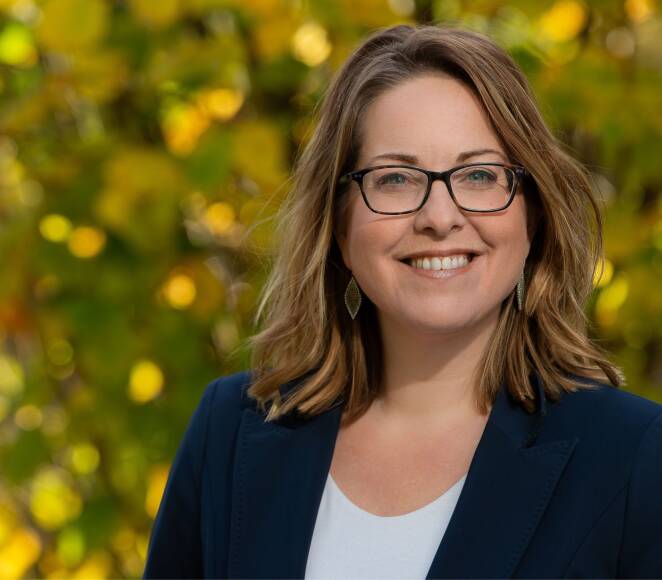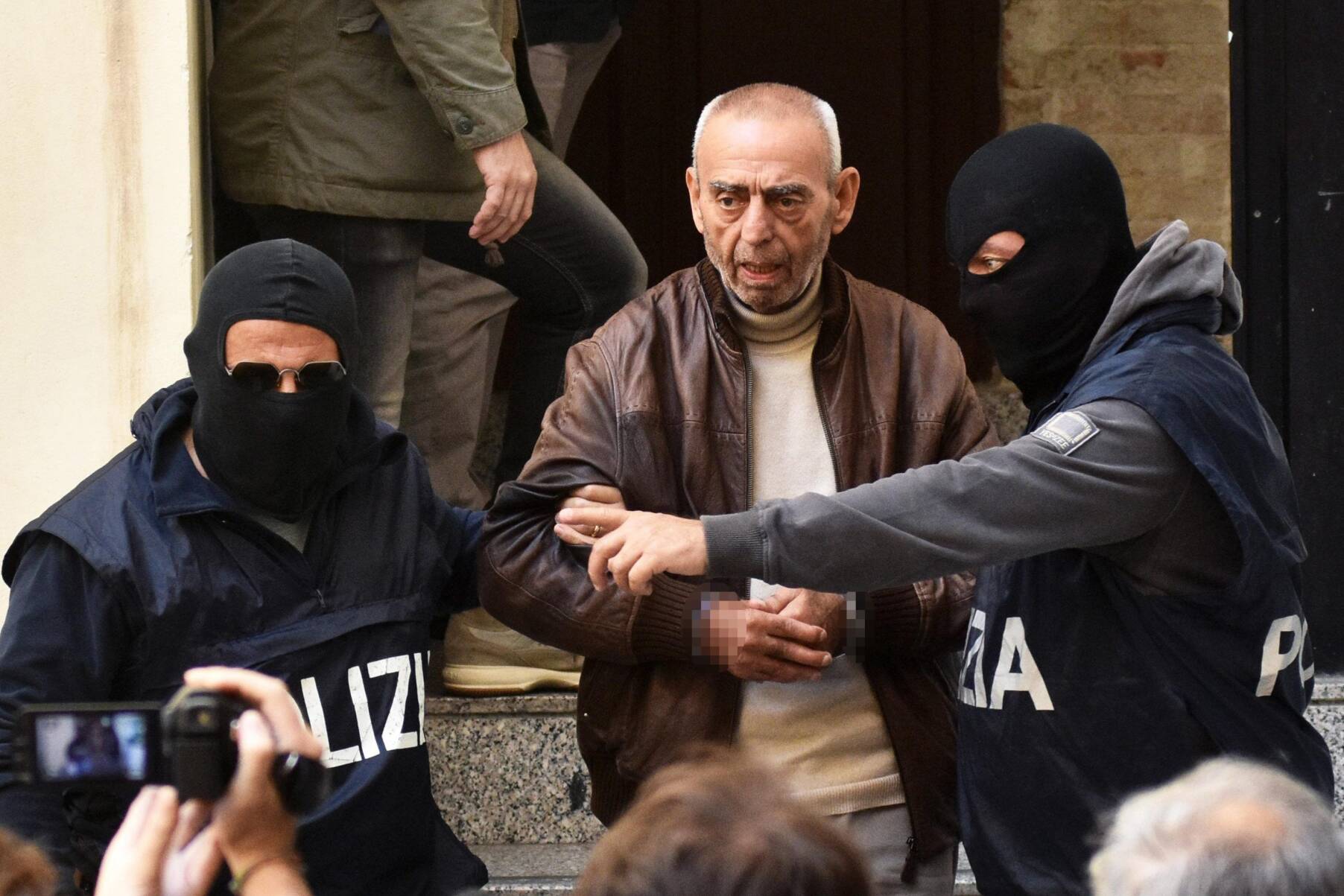Salvatore Profeta is arrested by police in a raid which wiped out the Mafia family gang of Palermo called ‘Guadagna’, in Palermo, Italy, 12 November 2015.
PHOTO: EPA / MIKE PALAZZOTO



PROPOSITION
Ilonka N. De Keijzer – Faculty of Medical Sciences
Science can never solve one problem without raising ten more problems.
George Bernard Shaw
L

Italy already had a head start in its approach to Mafia crime. Paolo Borsellino and Giovanni Falcone are infamous, even in the Netherlands. These examining magistrates were pioneering with new methods as early as the 1990s. They introduced the concept of crown witnesses, for example. A small fish in a Mafia network, is given a reduced sentence in exchange for information. But this makes a huge demand on the crown witness and their family. After all: talk and you’re dead seems to be the motto. Falcone and Borsellino paid a high price for their efforts. They were both murdered. But thanks to their approach, countless Mafiosi ended up behind bars.
Crown witnesses
The Dutch crown witness scheme is still in its early stages, and could benefit from the lessons that Italian lawyers learned from their mistakes. As an example, Peters explains that in Italy, crown witnesses have 180 days to tell the court what they know. This does not have to be recorded in detail, but their statement must set out the contours of their information. Without this time limit, a crown witness could take years to disclose their information, making and renewing their own demands along the way. ‘It then becomes a negotiation, and risks putting the Public Prosecution Service under pressure.’
No security
They are also further ahead in Italy in respect of personal security. Public prosecutors, lawyers, and family members of crown witnesses are given proper protection from the start. The situation is different for judges; Peters knows some judges who expressly refuse protection throughout the case because they don’t want to show any partiality. ‘I talked to judges hearing cases like this in Palermo. “Do you get counselling, do you have psychological support?” I asked. They looked at me as if I was mad. To them, this is all in the game, so they just get on with it.’
Definition of Mafia crime
Another point where the Netherlands could learn from Italy relates to the definition of ‘Mafia’. In the Netherlands, we use the term ‘undermining’ when we talk about crime that has a huge societal impact, such as organized drugs crime. ‘This is political language, which has its uses as it ensures that things are put on the agenda. But it’s no use at all to lawyers.’ There’s a clear definition of Mafia crime in Italian criminal law, which for example includes the omertà, the duty of confidentiality, and the term ‘subjugation’. If someone is found guilty of Mafia crime according to this definition, they can expect a heavier sentence.
Lectures in comparative criminal law
Peters has now shifted her focus and is carrying out a comparative law study of how artificial intelligence can be used to computerize witness statements. There is very little focus on comparative law in the Netherlands, she explains. Colleagues who are interested enough tend to do it as a sideline activity, alongside another expertise.
When she started out as a law student, Peters had no idea that she would take this path, simply because she had never heard of it. She chose law because she wanted to make a difference to society. An exchange visit to Rome served to confirm what she thought: she wanted her work to have an international character. And once she started attending lectures on comparative criminal law, there was no turning back. ‘My lecturer and later my supervisor, Peter Tak, always said: “Comparative criminal law means reading, writing, presenting, networking, and travelling.” That was everything I wanted, and I’m still happy doing it. I try to inspire new people, I want to show them that researchers don’t necessarily shut themselves away with a pile of books.’
Laura Peters
Laura Peters (1981) has been an Associate Professor of Dutch Criminal Law and Criminology in Groningen since 2023, where she started as a postdoc in 2011. She studied in Nijmegen, where she was awarded a PhD in 2012. During her PhD research, she was a guest researcher in Freiburg (Germany) and Bologna. She made a podcast series about fighting the Mafia (‘De strijd tegen de maffia’) with leading experts from the Netherlands and Italy.
This summer, Peters completed the International Four Day Marches in Nijmegen for the second time. (It means I’m back home for four days, among people with a southern accent.
And I see it as a physical triumph.’)
“
‘Risks are all in the game
for judges in Palermo’
TEXT: FRANKA HUMMELS
This summer, Laura Peters was conferred with the title Cavalliere dell’Ordine della stella d’Italia,
Knight in the Order of the Italian Star. A high Italian accolade, signed by the president. Associate Professor of Criminal Law and Criminology at the UG hadn’t seen this decoration coming. ‘When I got
the email inviting me to attend, my first thought was: is this a mistake? I even contacted the embassy
to check that I really had been invited to the residence.’
Peters is convinced they can.
Laws in context
As she explains, you can never simply replicate laws, but you can gain inspiration from other countries. After all, legislation is created in a context, tied in with other laws, and with the language, culture, and history of the country. ‘Comparative law is not simply a matter of comparing laws. Anyone can feed a law into ChatGPT, but you won't find out how that law is embedded in the system, what the impact will be.’
Hugely time-consuming
In Italy, she talks about how to make the judicial system more efficient. Although the Dutch Public Prosecution Service is renowned for its huge backlogs, the situation is even worse for our Italian colleagues. This is because some of the fundamental choices are made differently, explains Peters. In Italy, in principle, everything is done in the courtroom. The judge doesn’t read the case documents beforehand, because the contents must be presented during the hearing. And the defence must always be able to cross-examine witnesses themselves, who are expected to appear in the courtroom in person. This system is hugely time-consuming.
More pragmatic
Italy feels very strongly about human rights, particularly the rights of suspects, Peters explains. This is one of the consequences of the fascist Mussolini era, when the rule of law was not upheld in Italy. You see it in the lay-out of the courtroom, for instance: the defence always stands beside the prosecution and carries just as much weight. Peters is keen to stress that the rights of suspects are also important in the Netherlands. ‘But we’re more pragmatic about it. A written witness statement will often suffice.’
Murders
The reason for Peters’ large-scale comparative law research project into Italian criminal procedure was not a happy one: her decision was prompted by the murders of lawyer Derk Wiersma and journalist Peter R. de Vries, both killed in the Netherlands by organised criminals. ‘The fact that magistrates and journalists can’t do their work safely touches the very heart of the rule of law.’
aura Peters came into the Italian spotlight after years spent studying comparative law, in which she acquired a significant knowledge of the Italian language and culture. One of her larger projects involved exploring Italian anti-Mafia legislation. Could the two countries learn from each other?

PHOTO: EPA / MIKE PALAZZOTO


Salvatore Profeta is arrested by police in a raid which wiped out the Mafia family gang of Palermo called ‘Guadagna’, in Palermo, Italy,
12 November 2015.


PROPOSITION
Ilonka N. De Keijzer – Faculty of Medical Sciences
Science can never solve one problem without raising ten more problems.
George Bernard Shaw
Italy already had a head start in its approach to Mafia crime. Paolo Borsellino and Giovanni Falcone are infamous, even in the Netherlands. These examining magistrates were pioneering with new methods as early as the 1990s. They introduced the concept of crown witnesses, for example. A small fish in a Mafia network, is given a reduced sentence in exchange for information. But this makes a huge demand on the crown witness and their family. After all: talk and you’re dead seems to be the motto. Falcone and Borsellino paid a high price for their efforts. They were both murdered. But thanks to their approach, countless Mafiosi ended up behind bars.
Crown witnesses
The Dutch crown witness scheme is still in its early stages, and could benefit from the lessons that Italian lawyers learned from their mistakes. As an example, Peters explains that in Italy, crown witnesses have 180 days to tell the court what they know. This does not have to be recorded in detail, but their statement must set out the contours of their information. Without this time limit, a crown witness could take years to disclose their information, making and renewing their own demands along the way. ‘It then becomes a negotiation, and risks putting the Public Prosecution Service under pressure.’
No security
They are also further ahead in Italy in respect of personal security. Public prosecutors, lawyers, and family members of crown witnesses are given proper protection from the start. The situation is different for judges; Peters knows some judges who expressly refuse protection throughout the case because they don’t want to show any partiality. ‘I talked to judges hearing cases like this in Palermo. “Do you get counselling, do you have psychological support?” I asked. They looked at me as if I was mad. To them, this is all in the game, so they just get on with it.’
Definition of Mafia crime
Another point where the Netherlands could learn from Italy relates to the definition of ‘Mafia’. In the Netherlands, we use the term ‘undermining’ when we talk about crime that has a huge societal impact, such as organized drugs crime. ‘This is political language, which has its uses as it ensures that things are put on the agenda. But it’s no use at all to lawyers.’ There’s a clear definition of Mafia crime in Italian criminal law, which for example includes the omertà, the duty of confidentiality, and the term ‘subjugation’. If someone is found guilty of Mafia crime according to this definition, they can expect a heavier sentence.
Lectures in comparative criminal law
Peters has now shifted her focus and is carrying out a comparative law study of how artificial intelligence can be used to computerize witness statements. There is very little focus on comparative law in the Netherlands, she explains. Colleagues who are interested enough tend to do it as a sideline activity, alongside another expertise.
When she started out as a law student, Peters had no idea that she would take this path, simply because she had never heard of it. She chose law because she wanted to make a difference to society. An exchange visit to Rome served to confirm what she thought: she wanted her work to have an international character. And once she started attending lectures on comparative criminal law, there was no turning back. ‘My lecturer and later my supervisor, Peter Tak, always said: “Comparative criminal law means reading, writing, presenting, networking, and travelling.” That was everything I wanted, and I’m still happy doing it. I try to inspire new people, I want to show them that researchers don’t necessarily shut themselves away with a pile of books.’
which she acquired a significant knowledge of the Italian language and culture. One of her larger projects involved exploring Italian anti-Mafia legislation. Could the two countries learn from each other? Peters is convinced they can.
Laws in context
As she explains, you can never simply replicate laws, but you can gain inspiration from other countries. After all, legislation is created in a context, tied in with other laws, and with the language, culture, and history of the country. ‘Comparative law is not simply a matter of comparing laws. Anyone can feed a law into ChatGPT, but you won't find out how that law is embedded in the system, what the impact will be.’
Hugely time-consuming
In Italy, she talks about how to make the judicial system more efficient. Although the Dutch Public Prosecution Service is renowned for its huge backlogs, the situation is even worse for our Italian colleagues. This is because some of the fundamental choices are made differently, explains Peters. In Italy, in principle, everything is done in the courtroom. The judge doesn’t read the case documents beforehand, because the contents must be presented during the hearing. And the defence must always be able to cross-examine witnesses themselves, who are expected to appear in the courtroom in person. This system is hugely time-consuming.
More pragmatic
Italy feels very strongly about human rights, particularly the rights of suspects, Peters explains. This is one of the consequences of the fascist Mussolini era, when the rule of law was not upheld in Italy. You see it in the lay-out of the courtroom, for instance: the defence always stands beside the prosecution and carries just as much weight. Peters is keen to stress that the rights of suspects are also important in the Netherlands. ‘But we’re more pragmatic about it. A written witness statement will often suffice.’
Murders
The reason for Peters’ large-scale comparative law research project into Italian criminal procedure was not a happy one: her decision was prompted by the murders of lawyer Derk Wiersma and journalist Peter R. de Vries, both killed in the Netherlands by organised criminals. ‘The fact that magistrates and journalists can’t do their work safely touches the very heart of the rule of law.’
“
‘Risks are all in the game
for judges in Palermo’

TEXT: FRANKA HUMMELS
This summer, Laura Peters was conferred with the title Cavalliere dell’Ordine della stella d’Italia,
Knight in the Order of the Italian Star.
A high Italian accolade, signed by the president. Associate Professor of Criminal Law and Criminology at the UG hadn’t seen this decoration coming. ‘When I got the email inviting me to attend, my first thought was: is this a mistake? I even contacted the embassy
to check that I really had been invited to the residence.’
L
aura Peters came into the Italian spotlight after years spent studying comparative law, in
Laura Peters
Laura Peters (1981) has been an Associate Professor of Dutch Criminal Law and Criminology in Groningen since 2023, where she started as a postdoc in 2011. She studied in Nijmegen, where she was awarded a PhD in 2012. During her PhD research, she was a guest researcher in Freiburg (Germany) and Bologna. She made a podcast series about fighting the Mafia (‘De strijd tegen de maffia’) with leading experts from the Netherlands and Italy.
This summer, Peters completed the International Four Day Marches in Nijmegen for the second time. (It means I’m back home for four days, among people with a southern accent.
And I see it as a physical triumph.’)
